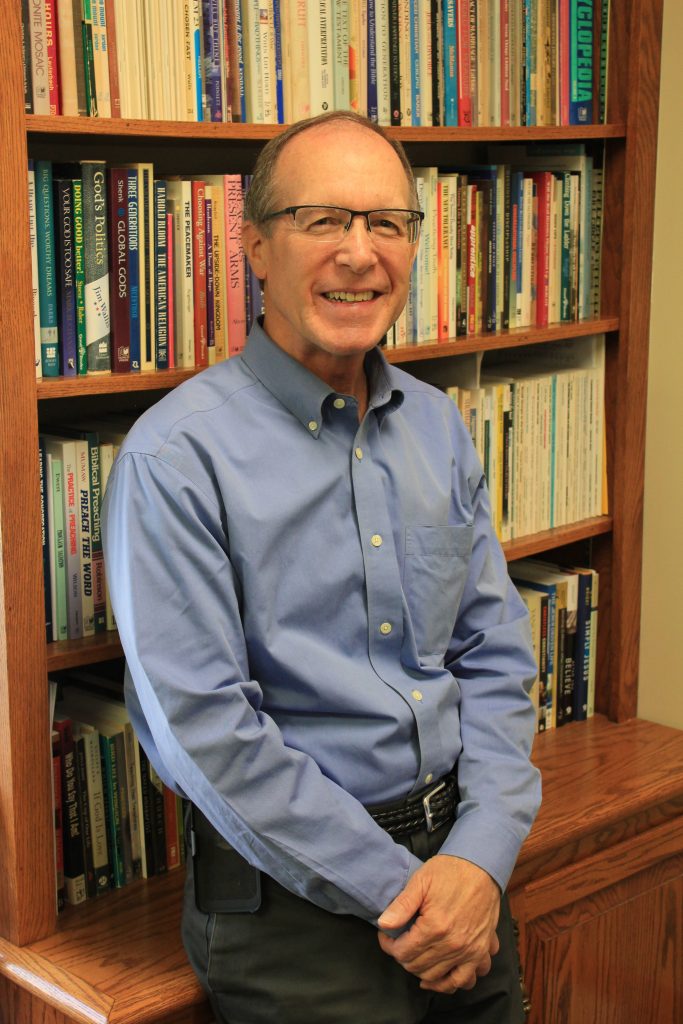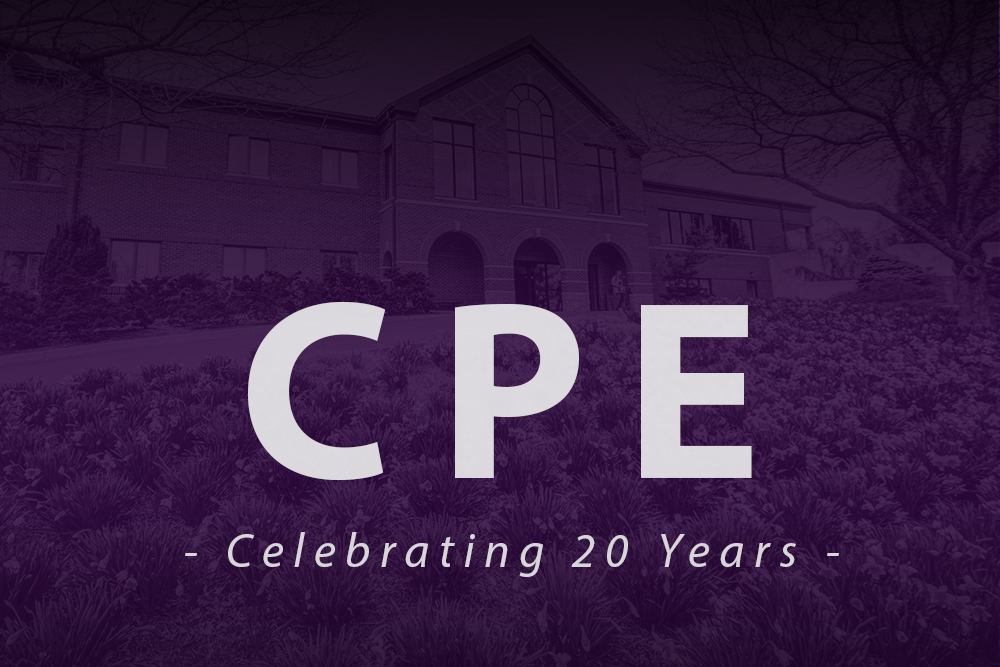The Clinical Pastoral Education program at Eastern Mennonite Seminary celebrates its 20th anniversary this academic year. Since 1999, 290 people have been trained through the seminary’s program. They serve and minister in a variety of contexts and many states, carrying their CPE practice learnings with them wherever they work.
We’ve invited a series of guest writers to share about how CPE training has shaped their life and ministry. Join us at a celebration during the January 2020 School for Leadership Training. To learn more, visit https://emu.edu/seminary/cpe/anniversary
Phil Kanagy offers reflections below. Also enjoy posts by our guest authors Anne Kauffman Weaver, Melanie K. Lewis, Shawn Gerber, and Lisa Meyer Vineyard.

Phil Kanagy MDiv ‘16 is lead pastor at Weavers Mennonite Church in Harrisonburg, Virginia.
I was a late-comer to seminary, and CPE was part of the curriculum (though not required). I signed up, imagining that since I had been a pastor for umpteen years already and had notched hundreds of hospital visits by now, this should go pretty well. It did turn out reasonably well, but I learned quickly that doing patient visits through the lens of CPE was quite different from the patterns I’d grown accustomed to as a congregational pastor. Visiting parishioners I already knew on a first name basis was as comfortable as wearing an old pair of jeans, but those comfortable and familiar patterns were also blinders that caused me to miss some opportunities for deeper interactions with patients.
CPE helped me to listen better – to see more, and to pay more attention to what patients are saying, where they might be trying to lead the conversation, and therefore what matters to them. When visiting parishioners I already knew, I could “lollygag” my way through a visit without being fully attentive to their leading comments. A CPE visit, on the other hand, may last 30 seconds, or 3 minutes. And the stranger in the bed may or may not want my visit (unlike most parishioners)! But I learned that those few seconds or minutes are pregnant with opportunity… if one is alert and listening fully. So, make them count—with parishioners too. CPE taught me to develop productive questions to engage patients with, which in turn increased my capacity to reach deeper levels of conversation and pastoral care during patient visits. It’s one of the assets from CPE that I continue to be grateful for.
The vision for ministry statement I crafted for my experience with CPE reads:
My vision for ministry is: to create space and an environment that will assist persons to receive God and the fullness of life that God yearns to create in each person. (from John 10:10)
This presumes that a “life that really is life” (1 Tim.6:19) is a real and authentic entity, and that it’s possible to take hold of – and receive – that life. CPE, for me, became the practice of opening up spaces for people to notice and connect to the life that really is life. Sometimes it’s more about simply noticing where life is already present than it is about opening new spaces.
We live in a world where many spaces are assumed to be empty spaces, and many places are assumed to be flyover places – places without meaning, places to only pass through but not to stay. Wastelands. Spaces and places to avoid. Metaphorically speaking, we encounter many such spaces/places in our Spiritual journeys. And we forget how often God shows up in wastelands, deserts, borderlands, etc. The Psalm writer asks rhetorically: Where can I go from your spirit? Where can I flee from your presence? If I ascend to heaven, you are there; if I make my bed in Sheol, you are there (Ps.139:7-8). There is no such thing as empty space, or meaningless places.
Today, whether it’s seeking to open new spaces for folks who seem dislocated and disembedded from life, or whether it’s fanning the sparks of life already present – helping people to discover Life even in the flyover wastelands of illness – I am grateful to CPE for helping to sharpen my awareness of God’s presence everywhere, and to cultivate practices that can help people reclaim their bodies and their lives.
Phil Kanagy has been a vocational pastor for more than 40 years, serving congregations in West Virginia, Ohio and Virginia. He holds Bible and Christian ministries degrees from Eastern Mennonite University and an MDiv degree from Eastern Mennonite Seminary.

Great Phil, you have pastored for many years blessings as you continue the work that God called you to.
A friend of mine involved in MSD work recently talked to me about your work with MDS, you as truck driver bring in supplies for bridges in West Virginia. His name is Loren Yoder from Belleville, Pa.
Good to read about your work, and for the help the CPE training was for you.
Cousin, Aquilla Kanagy